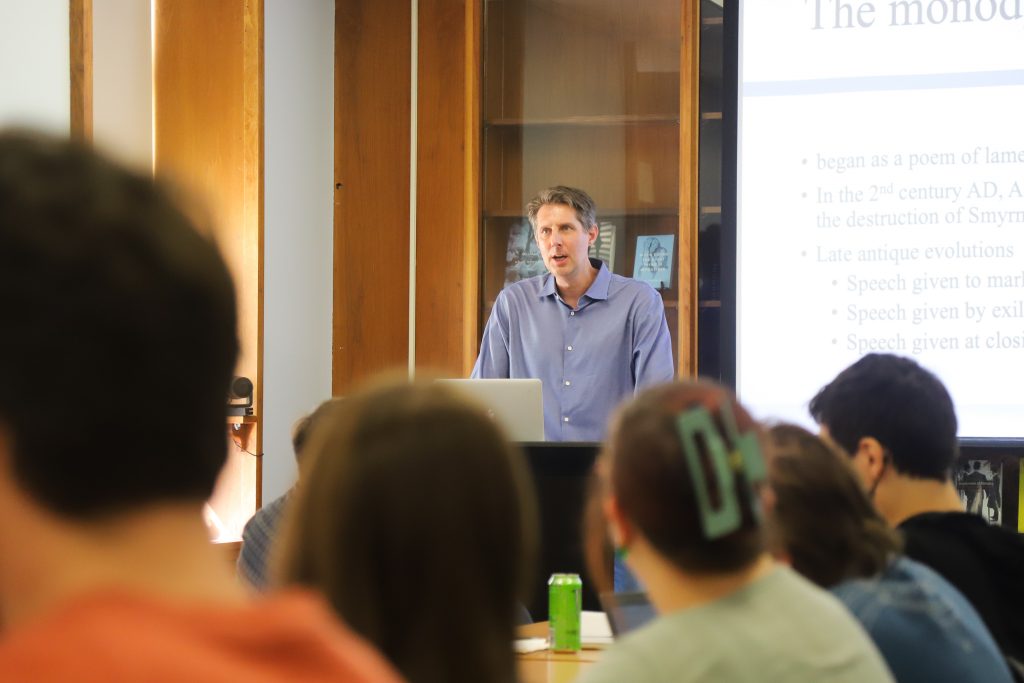Edward Watts, a professor of history at the University of California, San Diego, delivered a lecture this past Wednesday based on his research of Roman history. The talk, “Religion and the Political History of Rome,” was hosted by the Center for Medieval and Renaissance Studies and cosponsored by the departments of history and Middle Eastern and Ancient Mediterranean studies.
Watts, a scholar holding bachelor’s degrees in classics and ancient and medieval culture from Brown University and a Ph.D. in history from Yale University, focuses on the intellectual, religious and political history of the Roman and early Byzantine Empires.
Nathanael Andrade, an event organizer who serves as the chair of Binghamton University’s history department, explained the seminar’s purpose.
“The seminar overall is really looking at how people interacted in what we call late antiquity, the late ancient world on the basis of their religious identities,” he said. “It’s the first period in human history in which people start to identity themselves according to what we typically think of as religions.”
Within the field, it is well understood that amid the heavily documented and studied eras of Roman history, much of the timeline is clouded within the murkiness of historical waters. To shed light on the past, Watts has proposed the “inter-chronological approach” to historical analysis, in which historians compare and contrast different eras through political and religious lenses to fill in sparse sections of the timeline. He believes that by combining the limited facts from these eras, one can better understand the evolution of Roman society and civilization.
“What I’m thinking of doing is using comparative history to explore different moments from across the vast scope of Roman history, to better understand phenomena that aren’t really sufficiently documented by themselves at the moment that they appear,” Watts said.
The first question he presented was the presence of religion in government as it evolved over thousands of years. Though governing bodies valued religion, it was unclear why. Watts drew on a historical event to arrive at a singular conclusion — the condemnation of Vestal Virgin Opia in 483 B.C., when the government deemed it necessary to punish her as she was challenging divine order and threatening the state’s political health.
Watts presents this attack as evidence that Roman society believed in a direct correlation between societal religious observance and the government’s political success. This idea is reinforced in accounts explaining that her punishment was not merely a personal retribution but an attempt to appease the gods.
With the inter-chronological approach, one can observe a continuity in the Romans’ consistent correlation between religion and politics. This continuity is striking given the numerous evolutionary changes and the transition of the nation’s religion throughout the government’s history.
While the rituals and public regulations changed, the underlying principle — that the well-being and success of the state were directly linked to divine favor — remained constant. Watts’ approach is further used to illustrate transitions in different cultural aspects and religious decisions throughout Roman history.
The lecture offered a compelling argument for understanding the intricate relationship between religion and politics in Roman history and left many attendees with new insights.



